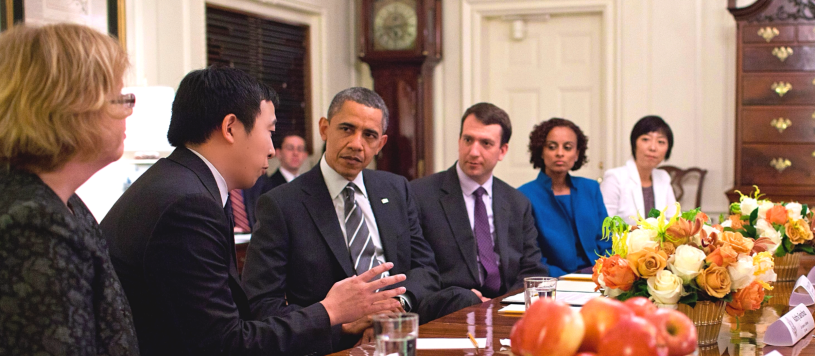March 22, 2018 (THE FERO REPORT):
[1] 10 Senate Democrats Help Kill Bill to End US Support for Saudi’s War Campaign in Yemen
A resolution introduced by Bernie Sanders, Republican Mike Lee, and Democrat Chris Murphy to withdraw US forces from the Yemeni Civil War died this week in the Senate.
The United Nations has called the Yemeni Civil War and it’s resulting chaos the most severe humanitarian crisis the world has seen in 50 years.
è Democrats who voted with Republicans to help keep the crisis going: Jack Reed (R.I.), Sheldon Whitehouse (R.I.), Bill Nelson (Fla.), Rob Menendez (N.J.), Doug Jones (Ala.), Joe Manchin (W.V.), Heidi Heitkamp (N.D.), Joe Coons (Del.), Catharine Cortez Masto (Nev.) and Joe Donnelly (Ind.).
Read Senate Joint Resolution 54 “to direct the removal of the United States Armed Forces from hostilities in the Republic of Yemen that have not been authorized by Congress.”
Here’s a recap from The Hill‘s Jordain Carney: Senate sides with Trump on providing Saudi military support
[2] NSA worked to ‘track down’ Bitcoin users, Snowden documents reveal
-The Intercept, by Sam Biddle
Step 1: Identify your priorities
Although the agency was interested in surveilling some competing cryptocurrencies, “Bitcoin is #1 priority,” a March 15, 2013 internal NSA report stated.
Step 2: Determine methods for accomplishing goals
The NSA collected some bitcoin users’ password information, internet activity, and a type of unique device identification number known as a MAC address, a March 29, 2013 NSA memo suggested. In the same document, analysts also discussed tracking internet users’ internet addresses, network ports, and timestamps to identify “BITCOIN Targets.”
Step 3: Eliminate Bitcoin’s alleged anonymity features using data collected.
An NSA reference document indicated that the data source provided “user data such as billing information and Internet Protocol addresses.” With this sort of information in hand, putting a name to a given bitcoin user would be easy.
[3] Eye on the ball: technologists look at what might come after blockchain
CoinCentral’s Bennet Garner has a new article out discussing what might replace or compete with distributed ledger technology, i.e. something similar to Bitcoin’s proof of work blockchain.
“Blockchain is not the only kind of distributed ledger technology out there. There are other ways of keeping a secure record without using blockchain. One such alternative that could replace blockchain is directed acyclic graph (DAG).
Directed acyclic graph is a type of network where transactions and information don’t get confirmed by the entire network. Instead, when a node communicates with the network to submit a transaction, it also confirms multiple other transactions at the same time.”
However, unlike Bitcoin, the network is relatively vulnerable to security threats. As a result, “in the early days, DAG projects usually need a central coordinator,” CoinCentral notes.
Read the whole article here.
[4] 2020 Presidential candidate wants to tackle social, economic impacts of automation with digital currency
- “I believe that we need to start owning these realities [of automation and artificial intelligence taking away jobs] and these challenges as a people, as a country, and as a society, and start being honest.
- “I’m running for president to solve the big problems and to show that these things are not beyond us,” Andrew Yang said in a recent interview with Tech Crunch.
Thought bubble: Problems like the mechanization of manufacturing, mounting national debt, and environmental degradation may not be the Millennial generation’s fault, but it is certainly our generation’s responsibility.
Yang: the first Crypto Candidate
- “There are many things that the monetary market right now will not value appropriately: raising children, arts and creativity, caring for the elderly, environmental sustainability, even science. Our society does not reward these things appropriately.”
- “My plan would be to create a new currency and put the new currency against it. This new currency can be traded in for dollars … and have this parallel economy based around things that we know are good.”
[5] NFL star Richard Sherman says this is the biggest problem with cryptocurrency right now
via Sports Illustrated, SI Staff
- “Every time you make a trade, there’s fee,” he says.
- “Skimming off the top. A lot of people don’t realize until you make 10 transactions in a day. You’re like ‘Why am I $200, $300, $400 less? They charge you out the yin-yang, and it limits what you thought you’d be able to do.”
- “Sherman is so passionate about cryptocurrency that he recently become a spokesperson for Cobinhood, a no-fee exchange that launched last fall. The company is based out of Taiwan and founded by 26-year-old Popo Chen.”
What does an all-pro NFL cornerback, and Stanford grad, know about markets? Enough to be his own agent, and broker a 3-year, $39 million deal for himself.
- “I didn’t feel like I needed an agent. I felt like I knew contracts well enough.“
- “Sherman was introduced by the 49ers Tuesday after signing a three-year, $39 million deal.”
Richard Sherman explains why he acted as his own agent, Sporting News, Gabrielle McMillen
